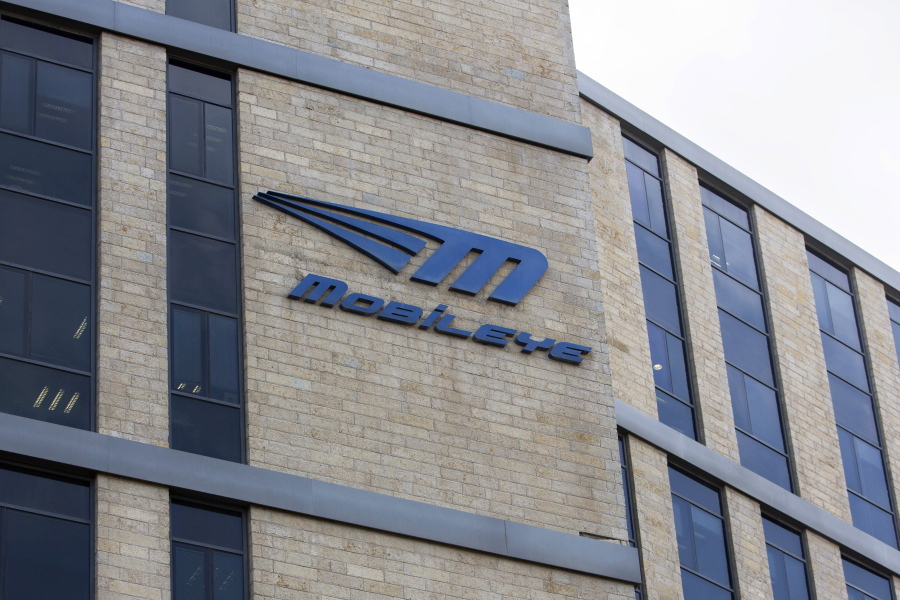Partnerships at a Glance
Intel Corp. said Monday that it will spend more than $15 billion to acquire Israel’s Mobileye NV, a software maker that processes the information cars see from cameras and sensors. Here’s a quick rundown of who’s working with whom:
INTEL (HERE, BMW, DAIMLER, AUDI, MOBILEYE)
• Intel Corp. acquired a 15-percent stake in HERE, a digital mapping service, in January. Nokia Corp. sold HERE to German automakers Daimler AG, BMW AG and Audi AG in 2015 for $3.1 billion.
• BMW teamed up with Intel and Mobileye in July to build and commercialize self-driving vehicles by 2021. BMW’s iNext electric sedan will serve as the platform for the technology. BMW says that the partnership will proceed as Intel and Mobileye combine.
UBER (GM, VOLVO, DAIMLER, OTTO, DIDI, TOYOTA)
• Ride-hailing company Uber Technologies announced a partnership with Daimler AG in January. Daimler, which makes Mercedes-Benz vehicles, plans to supply autonomous cars to Uber’s network in the future.
• General Motors Co. partnered with Uber in November. GM is renting cars to Uber drivers through the deal.
• Volvo Cars signed a $300 million deal with Uber in August. Volvo is providing vehicles for research and for Uber’s semi-autonomous taxi fleet in Pittsburgh.
• Uber bought Otto, a startup that has developed self-driving software for big rigs, for $680 million in August.
• Uber sold its China business to Chinese ride-hailing company Didi Chuxing in August in exchange for an 18-percent stake in Didi. Didi invested $1 billion in Uber as part of the deal.
• Toyota Motor Corp. bought a small stake in Uber in May.
GENERAL MOTORS (LYFT, CRUISE AUTOMATION)
• General Motors Co. invested $500 million in ride-hailing company Lyft Inc. in January 2016. The companies are developing autonomous electric taxis. Lyft drivers can also rent GM vehicles. GM put all-electric Chevrolet Bolts in its Lyft fleet in Los Angeles in February.
• General Motors acquired Cruise Automation, a startup that makes autonomous vehicle software, for $581 million in March 2016.
WAYMO (FIAT CHRYSLER, HONDA)
• Alphabet Inc.’s Google spun off a self-driving car company called Waymo in December.
• Waymo and Honda Motor Co. announced in December that they were in talks to form a partnership.
• Google — now Waymo — announced a deal with Fiat Chrysler Automobiles in May to build 100 semi-autonomous Chrysler Pacifica minivans. The vans will let Waymo double the size of its test fleet.
VOLKSWAGEN (MOBILEYE, GETT)
• Volkswagen AG announced a partnership with Mobileye in February. VW plans to integrate Mobileye’s real-time mapping service into its vehicles in 2018. It’s unclear whether the Intel and Mobileye merger will affect that agreement.
• Volkswagen invested $300 million in Uber competitor Gett Inc. in May. Gett said it would provide Volkswagen with the technology to expand into ride- and car-sharing.
AUDI (NVIDIA, HERE)
• Audi AG announced a partnership with chip-maker NVIDIA in January to develop autonomous vehicles by 2020. Audi will make the vehicles and use NVIDIA’s computing platform. NVIDIA is also working with mapmaker HERE.
FORD (ARGO AI, VELODYNE, SAIPS)
• Ford Motor Co. announced in February that it will invest $1 billion over five years in Argo AI, a startup that’s developing autonomous vehicle technology.
• Ford and Chinese search engine company Baidu Inc. invested $150 million in Velodyne in August. Velodyne makes the laser sensors that help guide self-driving cars.
• Ford also acquired Israel-based SAIPS in August for its expertise in artificial intelligence and computer vision.
NISSAN (SYLPHEO, NASA)
• The Renault-Nissan Alliance purchased French software company Sylpheo in September to develop ride-hailing and car-sharing services.
• Nissan and NASA announced a five-year partnership in January 2015 to develop autonomous driving systems. Nissan is testing self-driving systems with remote human managers that were initially developed for the Mars rover.



